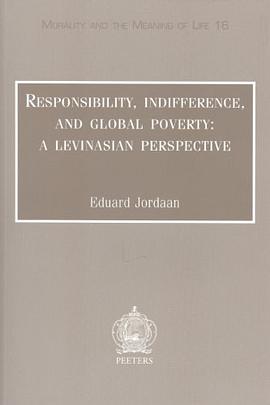

具体描述
Consider the fact that thousands of people die daily from preventable, poverty-related causes through no fault of their own. However, despite our failure to prevent more of these preventable deaths, we generally do not seem to consider ourselves particularly guilty, unjust, bad, immoral or irresponsible for our failure to act. This study attempts to understand our continued good conscience amid the suffering of the world's poorest. In doing so, it draws on Emmanuel Levinas's ethical philosophy to demonstrate how writings in the principal debate about the extent of our responsibility for others at the global level, the so-called 'cosmopolitan-communitarian debate', contain a number of elements that enable and perpetuate our indifference to the world's poorest.
作者简介
目录信息
读后感
评分
评分
评分
评分
用户评价
相关图书
本站所有内容均为互联网搜索引擎提供的公开搜索信息,本站不存储任何数据与内容,任何内容与数据均与本站无关,如有需要请联系相关搜索引擎包括但不限于百度,google,bing,sogou 等
© 2026 book.wenda123.org All Rights Reserved. 图书目录大全 版权所有




















